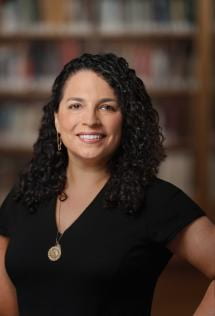Abstract
In this interview, Nicole Gonzalez Van Cleve, Associate Professor of Sociology at Brown University, discusses her experiences as a professor and academic navigating the COVID-19 pandemic.
Gonzalez Van Cleve begins by recalling her earliest memories of learning about COVID-19 and anticipating its impact on the Spring 2020 semester. She talks about assigning more readings in the beginning of the semester and speaking with her PhD students about prioritizing their well-being. She details a wellness statement she wrote prior to the virus, which gained popularity on social media when the virus began to impact campus life.
Gonzalez Van Cleve goes on to explain how her travel and event schedule began to wind down as threats of the virus grew and briefly touches upon inequalities of risk management techniques in education and trade careers as well as in prisons. She addresses another letter she sent out to students on March 15, 2020, again asking them to prioritize their well-being and sharing a personal story of grief and loss, likening it to students, staff, and faculty, grieving the loss of their semester and time on campus.
In closing her interview, Gonzalez Van Cleve explains that she hopes the pandemic will encourage “toxic cultural elements” of academia to ease and also inspire healthier work-life balances. She briefly mentions the difference between the way she would dress to work on campus and the way she dresses while self-isolating at home, also noting the claims that the virus could be carried in on shoes and therefore leaving shoes at the door. Finally, she demonstrates using her neck gaiter as a mask when going to the pharmacy and out in public.
Note: Dr. Gonzalez Van Cleve’s audio file and transcript are restricted. Please request access by emailing pembroke_archives@brown.edu.
Recorded on April 1, 2020 via Zoom
Interviewed by Amanda Knox, Pembroke Center Assistant Archivist
Suggested Chicago style citation: Gonzalez Van Cleve, Nicole. Interview. By Amanda Knox. Pembroke Center Oral History Project, Brown University. April 1, 2020.
Biography
Nicole Gonzalez Van Cleve is an Associate Professor in the Department of Sociology at Brown University and an affiliated faculty with the American Bar Foundation in Chicago, IL.
Van Cleve received her Ph.D. in Sociology from Northwestern University where she was a legal studies fellow. She received her B.A. (political science) and M.A. (sociology) from Northwestern University where she was awarded the Farrel Grant for Public Policy and the Badesch Fellowship from the Chicago Appleseed Fund for Justice. Prior to receiving her Ph.D., Van Cleve served in The Office of the Chief of Staff at the White House during the Clinton Administration and subsequently worked for five years as a Consumer Brand Planner for Leo Burnett, USA. She is the former Research Director for Chicago Appleseed Fund for Justice – a policy/nonprofit organization that specialized in legal advocacy. Van Cleve is a prolific public scholar. She has written for The New York Times, The Atlantic, NBC News, Crain’s Chicago Business, and CNN. Her legal commentary has been featured on NPR, NBC News, CNN, and MSNBC’s The Rachel Maddow Show.
Professor Gonzalez Van Cleve’s research is motivated by a central concern: theoretically challenging conventional paradigms driving the study of race and racism and placing these concerns squarely in the mainstream of sociology as well as the subfields of law, organizations and cultural sociology. Overall, she imports a cultural theoretical perspective (rooted in cultural sociology) to the study of discretion and bias in organizations and show how these dynamics affect the law. Substantively, her research addresses the equitability of laws, the creation of racial meaning, and the “consumer experience” of criminal justice institutions. She applies a range of methodological and analytic approaches, which include traditional ethnography, comparative ethnography, content analysis, historical/archival work, and innovative large-scale, semi-structured fieldwork.
